Convergente-Assistencial Self-care of recyclable material collectors: nursing actions in light of Convergent-Assistance Research
Evaluación de los atributos de la Atención Primaria a la Salud desde la perspectiva de los adultos mayores
Autocuidado de catadores de material reciclável: ações de Enfermagem à luz da Pesquisa
Alexa Pupiara Flores Coelho Centenaro; Carmem Lúcia Colomé Beck; Rosângela Marion da Silva; Silviamar Camponogara; Andressa da Silveira; Fernanda Beheregaray Cabral
Abstract
Objective: to promote the self-care of recyclable material collectors through the application of the Theory of Self-Care Deficits.
Method: Convergent-Assistance Research conducted with recyclable materials collectorsfrom two recycling associations in Southern Brazil. The data was produced through participant observation, semi-structured interviews and convergence groups. The data was analyzed according to the steps proposed by the method: apprehension, synthesis, theorization, and transfer.
Results: the participants had deliberate actions undertaken and motivations for self-care. However, they presented deficits related mainly to habits that exposed them to occupational risks. In the supportive-educational group actions, participants discussed their self-care deficits and strategies to mitigate them. The research enabled changes in the work scenario; however, some self-care deficits persisted.
Conclusions and implications for the practice: it is pondered that profound changes require permanent actions for transformations in social inequities. However, the supportive-education nursing system enabled positive changes in the recyclable materials collectors' self-care, which corroborates the theoretical-practical contribution of the theory to nursing care.
Keywords
Resumen
Palabras clave
Resumo
Objetivo: promover o autocuidado de catadores de material reciclável a partir da aplicação da Teoria dos Déficits de Autocuidado.
Método: Pesquisa Convergente-Assistencial realizada com catadores de material reciclável de duas associações de reciclagem do Sul do Brasil. Os dados foram produzidos por meio de observação participante, entrevistas semiestruturadas e grupos de convergência. Os dados foram analisados segundo os passos propostos pelo método: apreensão, síntese, teorização e transferência.
Resultados: os participantes possuíam ações deliberadamente empreendidas e motivações para o autocuidado. No entanto, apresentaram déficits relacionados, principalmente, a hábitos que os expunham aos riscos ocupacionais. Nas ações grupais de apoio-educação, os participantes discutiram seus déficits de autocuidado e estratégias para mitigá-los. A pesquisa possibilitou mudanças no cenário laboral, no entanto, alguns déficits de autocuidado persistiram.
Conclusões e implicações para a prática: pondera-se que mudanças profundas exigem ações permanentes para transformações das iniquidades sociais. No entanto, o Sistema de Enfermagem apoio-educação possibilitou mudanças positivas no autocuidado dos catadores, o que corrobora a contribuição teórico-prática da teoria para o cuidado de Enfermagem.
Palavras-chave
References
1 Zolnikov TR, Silva RC, Tuesta AA, Marques CP, Cruvinel VRN. Ineffective waste site closures in Brazil: a systematic review on continuing health conditions and occupational hazards of waste collectors. Waste Manag. 2018;80:26-39.
2 Zolnikov TR, Ramirez-Ortiz D, Moraes H, Cruvinel VRN, Dominguez A, Galato D. Continued medical waste exposure of recyclable collectors despite dumpsite closures in Brazil. J Health Pollut. 2019;9(23):190905.
3 Schenck CJ, Blaauw PF, Viljoen JM, Swart EC. Exploring the potential health risks faced by waste pickers on landfills in South Africa: a socio-ecological perspective. Int J Environ Res Public Health. 2019;16(11):2059.
4 Cruvinel VRN, Marques CP, Cardoso V, Novaes MRCG, Araújo WN, Angulo-Tuesta A et al. Health conditions and occupational risks in a novel group: waste pickers in the largest open garbage dump in Latin America. BMC Public Health. 2019;19(1):581.
5 Thakur P, Ganguly R, Dhulia A. Occupational health hazard hxposure among municipal solid waste workers in Himachal Pradesh, India. Waste Manag. 2018;78:483-9.
6 Coelho APF, Beck CLC, Silva RM. Health conditions and illness risk of recyclable material collectors: an integrative review. Cienc Cuid Saude. 2018;17(1):37464.
7 Orem DE. Nursing: concepts of practice. 4th ed. St. Louis: Mosby; 1991.
8 Abedian Z, Rezaeean S-M, Latifnejad-Roudsari R, Mazloum S-R, Abbasi Z. The effect of prenatal self-care based on Orem’s Theory on preterm birth occurrence in women at risk for preterm birth. Iran J Nurs Midwifery Res. 2020;25(3):242-8.
9 Xu X, Han J, Li Y, Sun X, Lin P, Chen Y et al. Effects of Orem’s Self-Care Model on the life quality of elderly patients with hip fractures. Pain Res Manag. 2020;2020:5602683.
10 Mendonça SCB, Zanetti ML, Sawada NO, Barreto IDC, Andrade JS, Otero LM. Construction and validation of the Self-care Assessment Instrument for patients with type 2 diabetes mellitus. Rev Lat Am Enfermagem. 2017;25(0):e2890.
11 Riegel B, Jaarsma T. Self-care in long term conditions: old news or new thinking? Int J Nurs Stud. 2019;90:A1.
12 Mills A. Helping students to self-care and enhance their health-promotion skills. Br J Nurs. 2019;28(13):864-7.
13 Trentini M, Paim L, Silva DMGV. Pesquisa Convergente-Assistencial - PCA: delineamento provocador de mudanças nas práticas de saúde. Porto Alegre: Moriá; 2014.
14 Wittmer J, Parizeau K. Informal recyclers’ health inequities in Vancouver, BC. New Solut. 2018;28(2):321-43.
15 Arcain JR, Lopes MO, Rigon SA, Silva MZ. Living conditions: work, health and food of waste pickers in the metropolitan region of Curitiba, Brazil. Demetra. 2018;13(4):1023-39.
16 Lutinski JÁ, Neves LM, Quadros SO, Busato MA, Ferraz L. Recyclable material collectors: profile social and health hazards associated with the work. Hygeia [Internet]. 2017; [citado 2021 abr 28];13(24):162-74. Disponível em:
17 Coelho APF, Beck CLC, Silva RM, Vedootto DO, Silva JRP. Female work and health in the perspective of women recyclable waste collectors. Texto Contexto Enferm. 2018;27(1):e2630016.
18 Ston EF, Sales CA, Marcon SS. Perspectives of individuals with diabetes on selfcare: contributions for assistance. Esc Anna Nery. 2017;21(2):e20170043.
19 Santana MBA, Silva DMGVD, Echevarría-Guanilo ME, Lopes SGR, Romanoski PJ, Böell JEW. Self-care in individuals with chronic kidney disease on hemodialysis. Rev Gaúcha Enferm. 2020;41:e20190220.
20 Alves KAN, Costa AKAN, Ramos JSA, Silva DM, Rodrigues FM. Socio-economic, health and lifestyle conditions of recycled materials collectors. Saúde Pesqui. 2020;13(1):75-82.
21 Martínez L, Zuluaga B, Prada SI. Analyzing Factors associated with trash pickers’ health status: census data in a major city in Colombia. J Community Health. 2020;45(1):133-40.
22 Li X. Constructing a nursing theoretical system with characteristics of Chinese culture. Int J Nurs Sci. 2017;4(1):3-4.
Submitted date:
04/28/2021
Accepted date:
10/05/2021



